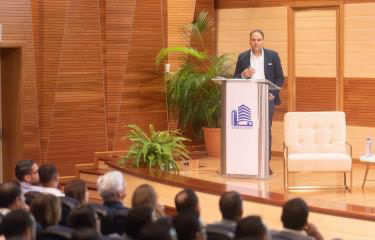Santo Domingo.- In a discussion titled “Sustainable Development, Architecture, and Urbanism,” organized by the Association of Housing Developers and Builders of Cibao (Aprocovici), experts emphasized the crucial role of designing and constructing with a collective mindset to promote sustainability.
The event brought together architects from different generations, featuring prominent panelists such as Otniel De Moya, Gustavo Valdez, Alejandro Frías, Carlos Encarnación, and Elia Briceño. Notably, Banco Popular and Cementos Cibao were the primary sponsors of this gathering, where key topics included responsible land use, preservation of water resources, and addressing climate concerns.
The discussion also highlighted the responsible utilization of natural resources in the creation of livable spaces, as well as designing cities that cater to the needs of present generations without compromising the rights of future ones.
Otniel De Moya, an architecture professor at Utesa and Pucmm universities, emphasized that true sustainability comes from designing with collective benefits in mind.
Gustavo Valdez, an architect with over 23 years of professional experience, stressed that “urban land is a finite resource.” He discussed the characteristics of polycentric cities and the increasing urbanization of agricultural lands within the country.
Alejandro Frías and Carlos Encarnación showcased exemplary architectural designs, open spaces, and social housing solutions for those with limited economic resources. Their work exemplified a commitment to functionality and essence in architecture.
Sandy Rodríguez, Vice President of Aprocovici, underscored the discussion’s mission to provide professional updates, explore diverse perspectives, and foster a sense of community within the sector. He emphasized the significant contribution of Santiago to the country’s Gross Domestic Product and called upon both private and public entities involved in real estate development to promote sustainability in their endeavors.
Other notable speakers included Alejandro Frías and Carlos Encarnación, graduates of the UASD, who are part of the firm Oblique Arquitectura Integral, known for prioritizing essence and functionality in their designs. Elia Briceño, representing the Bricket Group, was also present, advocating for improving the quality of life through sustainable development solutions. Otniel De Moya, known for his work on the bank of the Yaque del Norte River and his advisory role at the Garden Botanist of Santiago, added valuable insights to the discussion.

